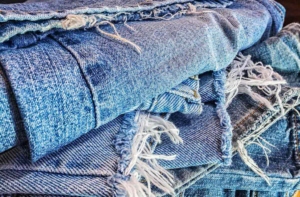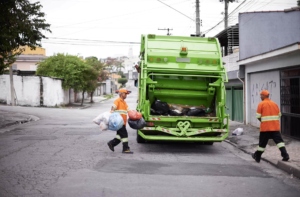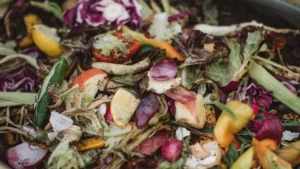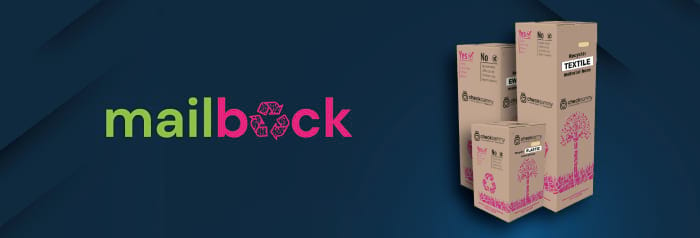13 Hard To Recycle Items & How To Dispose Of Them
Our attempts to reduce waste and protect the environment are increasingly relying on recycling as a tactic. Although recycling offers many benefits, some materials seriously hinder the recycling process. These products are notoriously challenging to recycle because they usually contain intricate parts, strict recycling requirements, or inadequate recycling infrastructure. In this blog post, we’ll delve into the world of hard-to-recycle items, examining the difficulties involved in recycling them and offering substitute techniques to lessen their environmental impact.
Call CheckSammy today and start improving tomorrow!
These materials, which include commonplace plastic bags, Styrofoam, single-use coffee cups, and composite packaging, create barriers in the recycling process. We’ll explore the causes of these goods’ problems and suggested substitutions to lower their usage. We’ll also examine hazardous and specialized garbage, such as electronic waste and compact fluorescent bulbs, to highlight the significance of recycling and correct disposal practices. We can make better decisions and help create a more sustainable future by being aware of the issues and looking into potential solutions. Join us as we explore the world of difficult-to-recycle objects and identify workable answers to these recycling puzzles.
13 Hard To Recycle Items
1. Plastic Bags & Film
Although plastic bags and film are now thought of as being synonymous with ease, they also pose a substantial recycling difficulty. Plastic bags and plastic wrap are difficult to recycle because of their thinness. They may become entangled in recycling equipment, resulting in equipment breakdowns and downtime. Thus, they are not accepted by many curbside recycling programs. They shouldn’t, however, be disposed of like regular trash because it can take hundreds of years for them to degrade in landfills.
2. Styrofoam (Expanded Polystyrene)
Expanded Polystyrene (EPS), generally known as Styrofoam, is a considerable challenge in the recycling industry. Due to its low weight and insulating qualities, it is frequently used to make packaging and disposable food containers. Yet, recycling Styrofoam might be challenging due to its nature. It is difficult to transport and process inside recycling facilities due to its low density and air-filled nature. Moreover, food residue frequently contaminates Styrofoam, making recycling much more difficult.
3. Single-Use Coffee Cups
Single-use coffee cups are more common due to how convenient it is to grab one on the go. These seemingly harmless cups do, however, impose a heavy environmental cost. Most disposable coffee cups include a thin plastic coating inside to make them waterproof, which presents a problem for recycling operations. Effective recycling requires separating the plastic lining from the paper cup, a technique that is difficult and not frequently offered in regular recycling programs.
4. Tetra Pak Cartons
Tetra Pak cartons are increasingly used to package liquid items including milk, juice, and other beverages. Due to their intricate makeup, these cartons present difficulties for recycling. Tetra Pak containers include several layers; normally, these layers are constructed of paper, plastic, and metal. It is challenging to adequately separate and recycle these elements because of their mixture.
5. Plastic Utensils
Cutlery and straws are only two examples of the disposable plastic items that have permeated our contemporary convenience society. But when it comes to recycling, these things pose serious difficulties. Due to their tiny size and mixture of ingredients, plastic utensils are frequently made of low-quality polymers that are difficult to recycle. These materials are frequently diverted to landfills or incinerators since many recycling facilities are ill-equipped to handle them effectively.
6. Composite Packaging
Composite packaging, like chip bags, candy wrappers, and snack food packaging, presents serious recycling issues. These kinds of packaging frequently consist of several layers of various materials, such as plastic, foil, and paper. It is challenging to successfully separate and recycle these materials using traditional recycling procedures due to their mixture.
7. Compact Fluorescent Bulbs (CFLs)
Compact Fluorescent Bulbs (CFLs), an energy-efficient replacement for conventional incandescent light bulbs, have grown in popularity. These bulbs do, however, contain a small amount of mercury, making it crucial for both the environment and human health that they are disposed of properly. Merely putting out CFLs can result in mercury leakage, endangering ecosystems and wildlife, and contaminating the environment.
8. Batteries
Many of our necessary gadgets and equipment are powered by batteries, yet recycling and disposal of batteries is a huge concern. Batteries include a variety of chemicals and heavy metals, such as lead, mercury, cadmium, and lithium, which, if handled improperly, can be damaging to the environment. Batteries can unfortunately wind up in landfills where their poisonous materials can leak into the soil and water, producing pollution and potential health hazards. This can also happen when batteries are thrown in the usual trash.
9. Textiles
When it comes to recycling, textiles, such clothing and home fabrics, present particular difficulties. Although recyclable, the variety of materials used in the creation of textiles makes the process difficult at times. In addition, a lot of clothing ends up in landfills, which adds to the expanding issue of textile waste.
10. Electronic Waste (E-Waste)
In our technologically advanced world, electronic garbage, or e-waste, has emerged as a rapidly expanding environmental hazard. Smartphones, laptops, televisions, and other electronic equipment that contain dangerous substances including lead, mercury, cadmium, and flame retardants are included in the category of “e-waste.” E-waste improperly disposed of endangers both the environment and people’s health.
11. Aerosol Cans
Due to their pressurized nature and potential leftover contents, aerosol cans, which are frequently used for a variety of personal care products, home cleansers, and spray paints, offer difficulties throughout the recycling process. Recycling of the canisters is made difficult by the presence of combustible propellants and the metal construction of the canister.
12. Ceramics & Pyrex
Due to its composition and special characteristics, ceramics and Pyrex, including items like dishes, cups, and bakeware, create difficulties throughout the recycling process. Although their strength and longevity, ceramics and Pyrex are not frequently accepted in conventional recycling programs or facilities.
13. Mirrors
Due to their special composition and structure, mirrors, which are frequently found in bathrooms, bedrooms, and dressing areas, present issues when it comes to recycling. Mirrors are frequently created by applying a reflecting coating to glass, which makes them challenging to recycle using traditional glass recycling procedures.
14. Composite Materials
Due to their complicated composition, composite materials, which are created by mixing various components to produce a new material with improved qualities, offer difficulties throughout the recycling process. Fiberglass, carbon fiber, and some varieties of plastic are typical examples of composite materials. Several industries, including construction, aircraft, automotive, and sporting goods, frequently use these materials.
Reduce, Reuse, Choose CheckSammy
Collective work and dedication to sustainable methods. We can make wise decisions and take the necessary steps to lessen the environmental impact of products like styrofoam, single-use coffee cups, Tetra Pak cartons, plastic utensils, composite packaging, Compact Fluorescent Bulbs (CFLs), batteries, ceramics and Pyrex, mirrors, and composite materials by being aware of the challenges they pose.
Individual efforts are essential, but working with groups like CheckSammy can help our recycling programs have a bigger impact. With its knowledge and resources, CheckSammy provides unique recycling solutions for difficult goods and materials.
Talk to us today!
See Our Services
Create a custom solution to meet your waste and sustainability goals. Contact us today!
Continue reading
Dive deeper into the CheckSammy Blog by reading one of our posts below
Feeling the Pain of Higher Resident Turnover? Apartment Junk Removal Can Help
If you’re a property manager, you’ve probably had a significant increase in tenant turnover over the last couple of years. So it’s no wonder apartment junk removal may be top of mind for you right now. There are several reasons for this shift. For one, the housing market is on fire right now. In 2020 […]
Read More About Feeling the Pain of Higher Resident Turnover? Apartment Junk Removal Can HelpSetting Up a Community E-waste Recycling Program
E-waste is the fastest-growing municipal waste stream according to the EPA, yet e-waste recycling isn’t keeping pace. In fact, only 12.5% of all e-waste is recycled, reports the EPA. Starting a community e-waste recycling program is a terrific way to ensure hazardous e-waste, like lithium-ion batteries, doesn’t end up in your community’s landfill. Creating an […]
Read More About Setting Up a Community E-waste Recycling ProgramWaste Management’s Role in the Circular Economy
Establishing a waste management program for your business or community is one of the best ways you can contribute to the circular economy. Here’s everything you need to know about waste management’s role in the circular economy (and how to get involved). What Is the Circular Economy? Our current economic model is all about taking […]
Read More About Waste Management’s Role in the Circular Economy5 Reasons to Consider a Textile Recycling Program for Your Organization
Americans sent more than 17 million tons of textiles to landfills in 2018, a volume that is only increasing every year, reports the Environmental Protection Agency. When you think about the fact that it can take over 200 years for textiles to decompose, it’s easy to grasp how large textile waste’s contribution is to the […]
Read More About 5 Reasons to Consider a Textile Recycling Program for Your Organization8 Benefits of Environmentally Friendly Power Washing Services
If you’re into maintaining the curb appeal of your business or home, then you’ve probably heard of pressure washing. Pressure cleaning involves using high-pressure water spray to remove grime, mold, dust, paint, mud, and other junk from objects or surfaces. Many people worry that pressure washing isn’t good for the environment, but this couldn’t be […]
Read More About 8 Benefits of Environmentally Friendly Power Washing ServicesWhy Our Customers Love Our Full-Service Junk Removal
If you’re looking for full-service junk removal services, you’ve come to the right place. CheckSammy is a one-stop shop for all your junk removal and sustainability needs. From our affordability, simplicity, and unrivaled turnaround times to our innovative sustainability solutions and patented technology and data, it’s clear why some of North America’s biggest companies choose […]
Read More About Why Our Customers Love Our Full-Service Junk RemovalTips for a Stress-Free Move From An Eco-Friendly Junk Removal Company
What does an eco-friendly junk removal company know about moving? Quite a lot, actually. Moving can be an especially chaotic time. You have to pack everything up, get rid of unwanted items, clean your property, load everything up, and move your things to your new location. That doesn’t even include the unpacking and resettling period. […]
Read More About Tips for a Stress-Free Move From An Eco-Friendly Junk Removal CompanyCollege Junk Removal Tips for Student Move-In Day
As the new school year gears up, colleges across the country are looking for ways to clean up their campuses before the new year begins, and many of them want to do so sustainably. College junk removal isn’t easy, though, especially around move-in week—and when trying to do so sustainably. As students move in and […]
Read More About College Junk Removal Tips for Student Move-In Day8 Items Hospitality Businesses May Not Know They Can Recycle
One hotel guest produces 2.5 pounds of trash every single day. Just a single hotel room produces around one cubic yard of waste each month, which totals 200 gallons of waste per room every month. Most of this waste goes straight to the landfill, even though research shows that up to 60% of it is […]
Read More About 8 Items Hospitality Businesses May Not Know They Can Recycle












